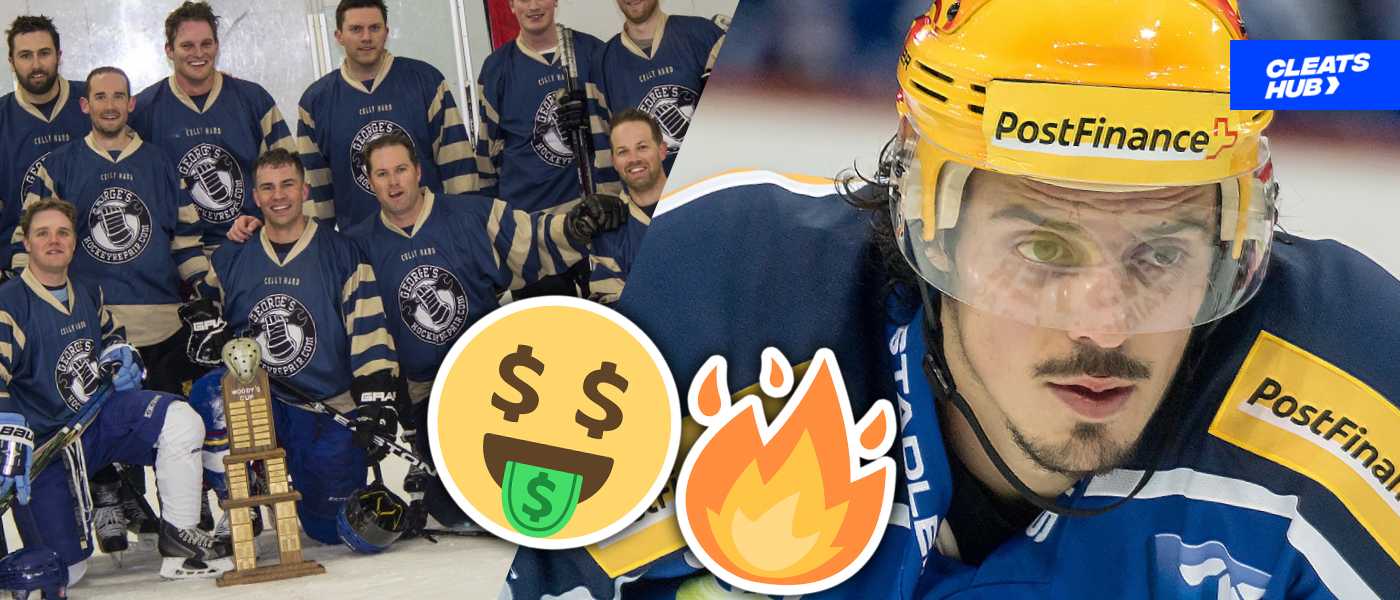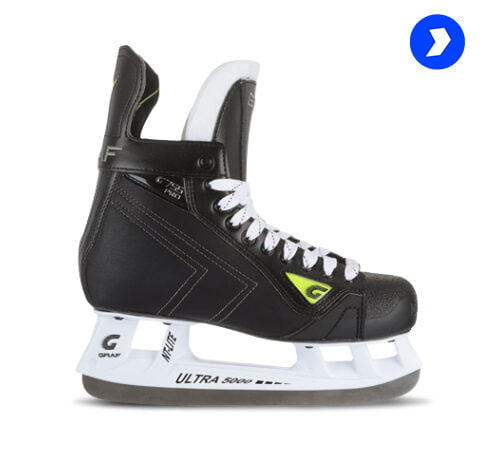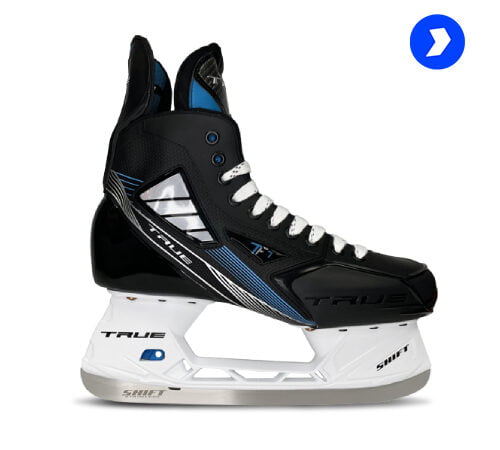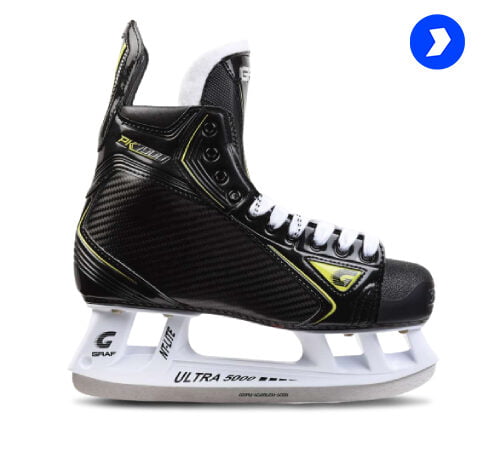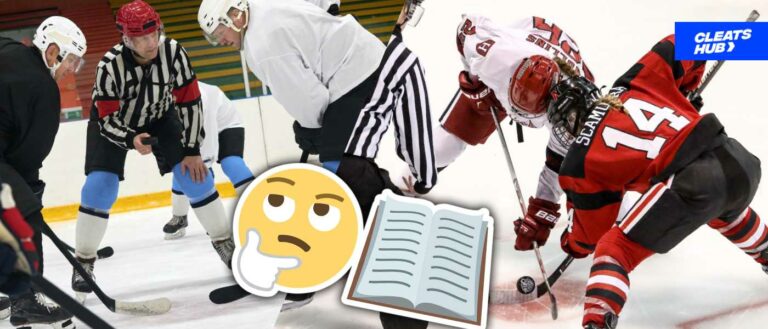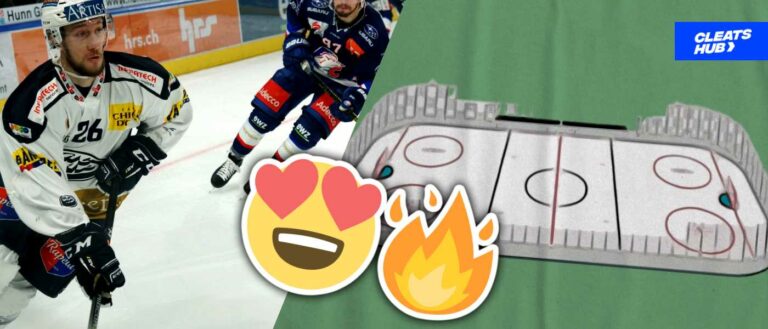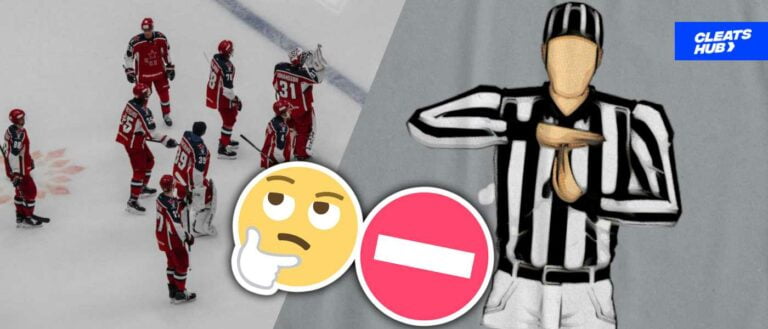Are NHL Contracts Guaranteed?
NHL contracts are legally binding agreements between players and NHL clubs that outline the terms and circumstances of the partnership as well as the remuneration of the player mentioned. When it comes to contracts, each sports league has its own set of laws. The question we’d like to address today, however, is whether NHL contracts are guaranteed.
Are All NHL Contracts Guaranteed?
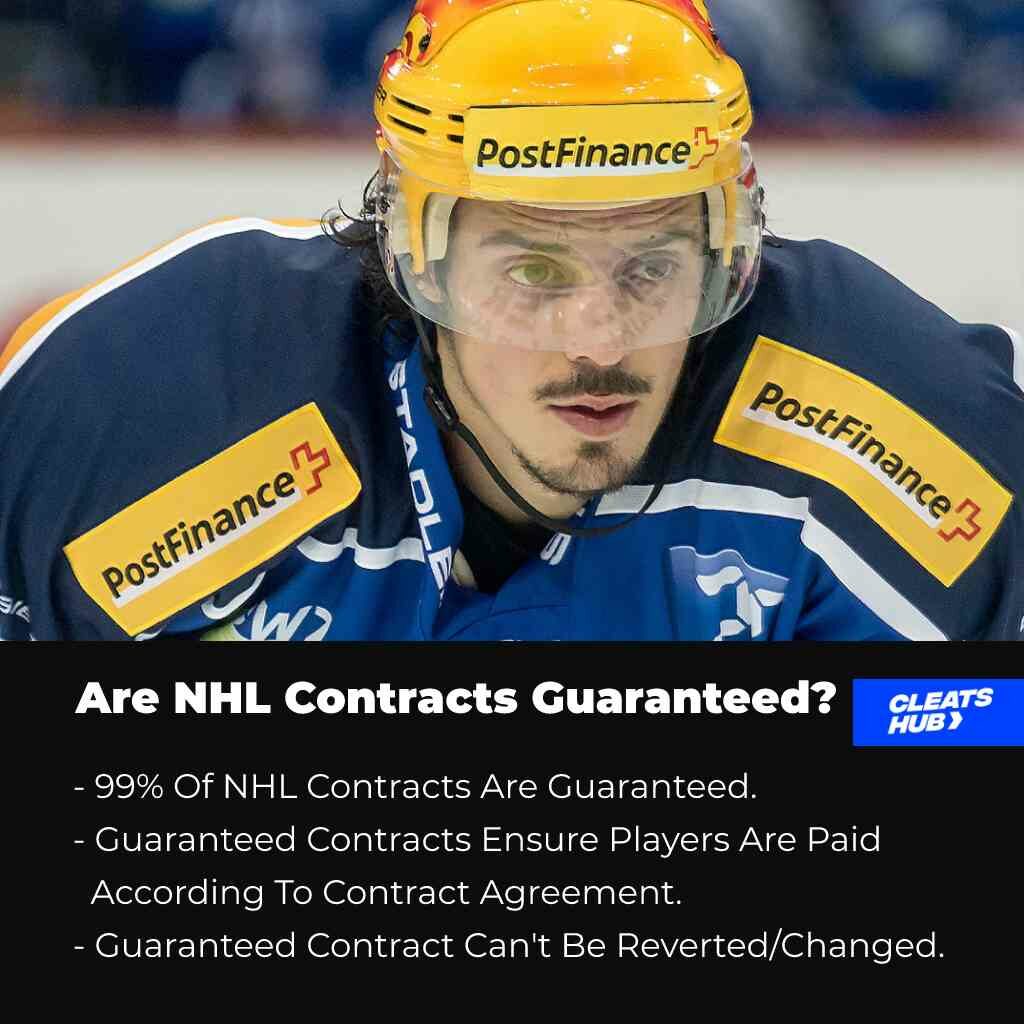
Let’s define a guaranteed contract first. A guaranteed contract is a sort of agreement that promises to pay a player the agreed-upon sum in full. Under guaranteed contracts, athletes are guaranteed to get the full amount of their compensation, regardless of a team’s or its management’s decisions or actions.
Guaranteed contracts cannot be modified, revised, or reversed until they have expired. Now that we’ve defined it, do NHL contracts come with guarantees?
The simple answer is yes. All NHL contracts are guaranteed; this is one of the beauties of the league. However, there are a few exceptions to this rule, and we will be looking at those later on.
The purpose of guaranteed contracts is to serve as a technique to prevent club owners from signing players, releasing them from their roster, or breaking the terms of the deal whenever they feel like it.
Just approximately 1% to 2% of NHL contracts are not guaranteed, despite the fact that 99% of them are. The only situations in which a player is not entitled to receive the whole amount of a contract are buyouts, contract terminations, and escrow.
In this post, we’ll talk about all of this and more, but first, let’s look at the different kinds of contracts in the NHL.
Types Of NHL Contracts
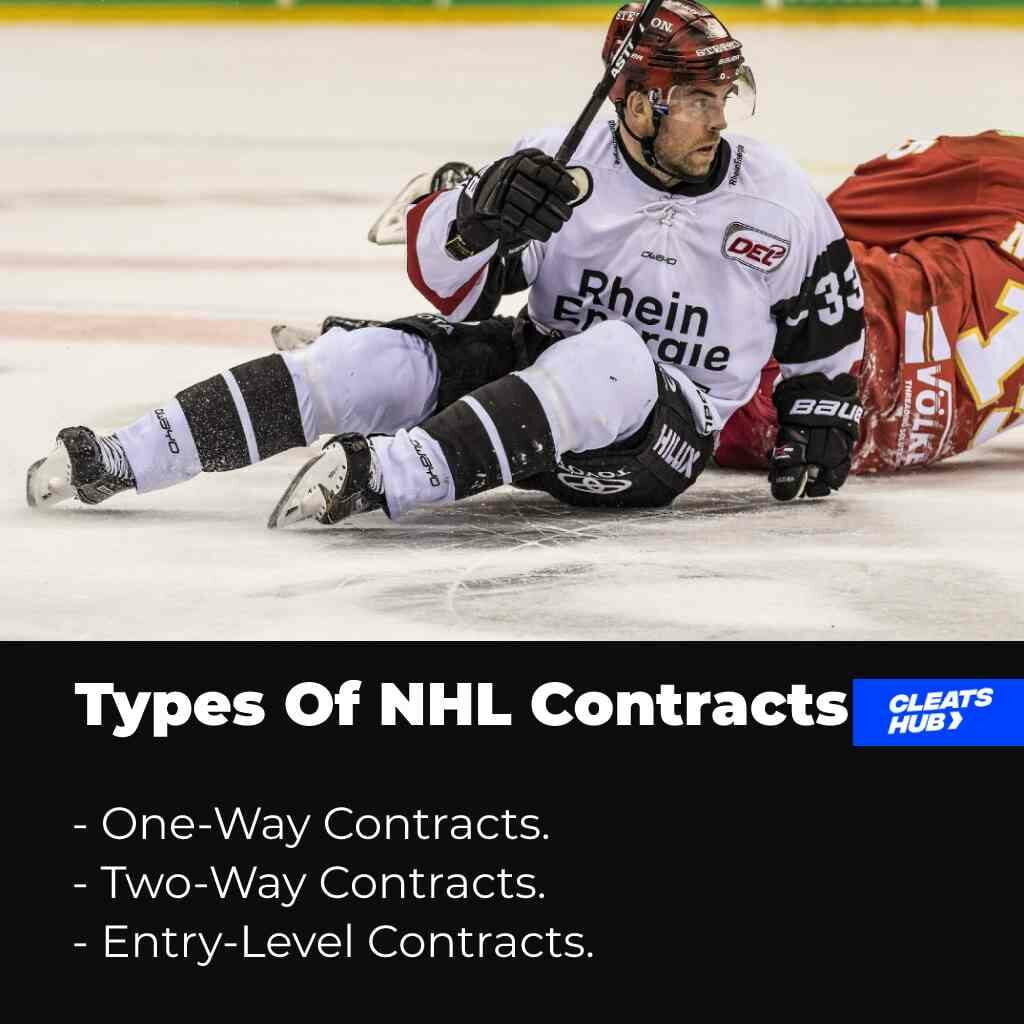
Before we move forward on this topic, it is essential that we have a basic idea of contracts in the NHL. The NHL has three major contract types: one-way contracts, two-way contracts, and entry-level contracts (ELC). Each differs in its provisions and requirements.
1. One-Way Contracts
A one-way contract in the NHL is a sort of agreement that specifies a monetary value that a player will earn, regardless of whether he plays for the team or is loaned to any affiliated league.
Here is an example: if a player signs a $1.87 million per year one-way contract for 3 years, he will still be paid the contract value even if his team decides to send him down to the minor league, such as the AHL.
Most valuable players on a team that a franchise does not plan to loan often get one-way contracts. Regardless of this, NHL teams still send players with one-way contracts down to the minor leagues.
Two-Way Contracts
Two-way contracts work differently from one-way contracts in the NHL. These contracts provide two different monetary values, which state that a player will receive one if they play in the NHL and another when loaned to a minor league.
For example, a two-way contract can give a player $1.04 million if he plays in the NHL and just $250,000 if he is sent to the AHL. Players with two-way contracts are more likely to be placed on waivers and sent to a minor league. This is because the team will pay a lower annual salary if a player is in the AHL compared to when he plays in the NHL.
Entry-Level NHL Contracts
Entry-level contracts in the NHL are given to players who are just newly drafted into the league. For all players under 25 (as of September 15) who are new to the NHL, this is the first contract they are offered. This means that all NHL draft picks who are signed to the NHL begin with an entry-level contract.
But it’s not just for NHL drafts. The first NHL contract for any player under the age of 25 is always an entry-level contract. Depending on the age of the athlete, an ELC (abbr. for entry-level contract) can last up to three years.
- Players aged 18-21 will sign an ELC for 3 years.
- Players aged 22-23 will sign an ELC for 2 years.
- Players aged 24 will sign an ELC for 1 year.
No matter where a player plays, all of the aforementioned contract forms mentioned above show that they get the entire amount of money stipulated in their binding contract. Players’ contracts are always guaranteed in the NHL; however, there are rare exceptions.
Exceptions To Guaranteed NHL Contracts
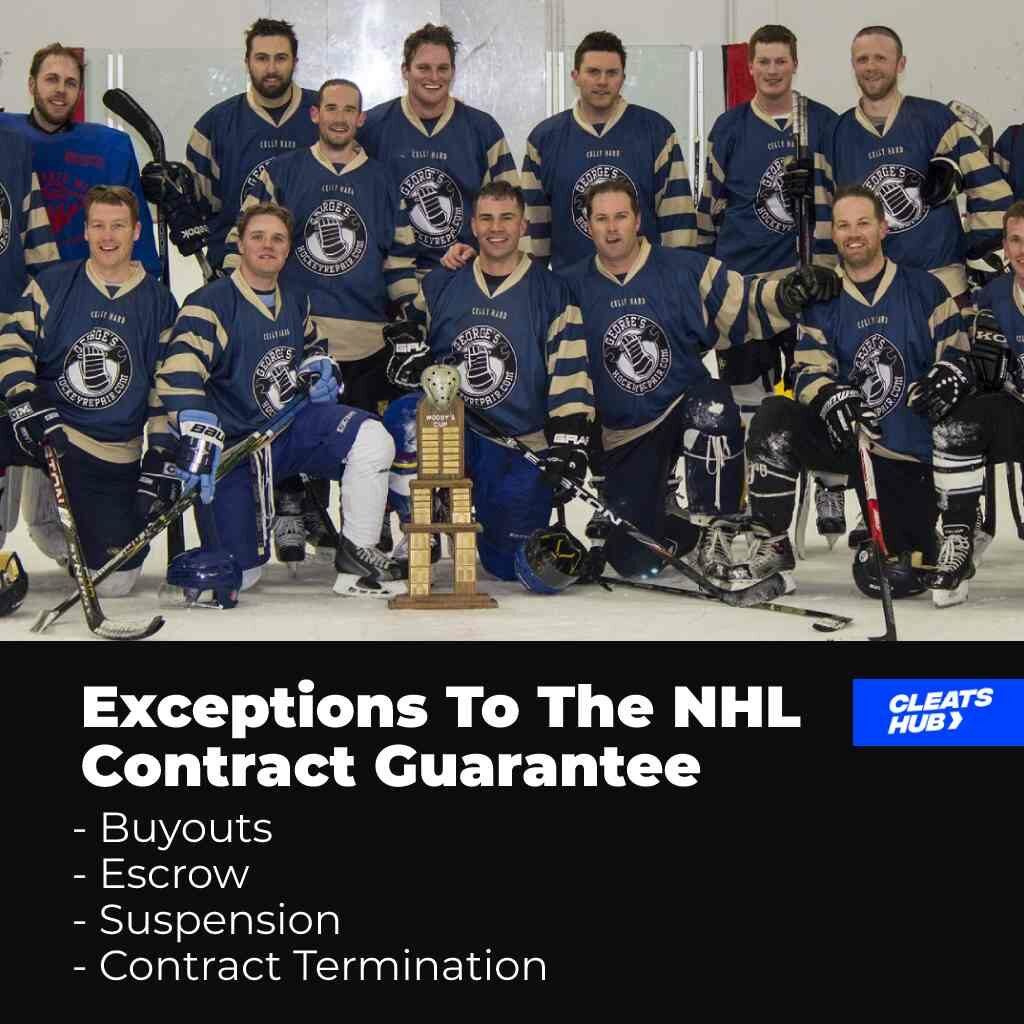
The exceptions to contract guarantees in the NHL are buyouts, contract termination, escrow, or suspension. Let’s look at each of them and how they affect contract guarantees.
Buyout
A club may request a buyout if it determines it no longer wants to work with a player and wants to end the player’s contract prior to the time limit. As the name suggests, it entails paying off a player from his existing contract with an NHL team.
Due to the fact that the player won’t get the whole amount of money specified in the contract, it is seen as an exception to the norm.
The NHL’s two main justifications for a buyout are:
- When a team exceeds the maximum salary cap for an NHL season and needs to cut down players’ contracts to stay within the cap limits.
- Secondly, when a team regrets a contract with a player and wants to end the contract of the player either due to poor performance or an exorbitant contract.
A specific percentage of the contract’s remaining worth must be returned to the player when a team wishes to buy a player out of their deal. The player’s age affects the percentage paid, as seen below:
- If a player is younger than 26 years, he is given one-third of the remaining value of the contract.
- And if a player is 26 years or older, he is paid two-thirds of the remaining contract value.
However, since the overall contract worth counts toward the team’s wage limit for twice as long as the contract is still in effect, team management seldom buys out player contracts.
Contract Termination
In the NHL, contract termination is uncommon, yet it occurs when there is a criminal offense or contract violation. A player’s contract may be canceled by the team he plays for or even by the league if he violates the terms and conditions outlined in it.
Also, a player’s contract may be terminated if they are found guilty of severe crimes like rape or domestic abuse. This is because such crimes can damage the image of the franchise and league.
Escrow
From the collective bargaining agreement between the NHL and NHLPA, it is stipulated that a team’s earnings would be split equally between its owners and players. As a result, a club’s earnings will have to be divided in half, with one half going to the team owners and the other half counting toward the salary cap that will be utilized to pay player salaries.
Escrow is a financial arrangement where a third party (the league) retains a portion of the player’s pay that they may or may not receive back. In the event that the income falls short of the team’s overall salary cap, the percentage is kept in escrow.
Let’s say the income release is less than what is needed to cover the players’ salary when divided in half. In that situation, the money held in escrow is utilized to make up the shortfall.
If any money is still in escrow after that, it is returned to the team. The entire proportion held in escrow is given back to the players, though, if the requisite amount of money is reached.
Suspension
Suspensions, on the other hand, are given when a player commits infractions either on or off the ice. When a player is suspended, the number of days he stays on the suspension will be counted against his paycheck.
Conclusion
Most of the time, an NHL player will collect his total contract value. However, the most common way players get less than their paycheck is through Escrow and, in a few cases, Buyouts.
And that brings us to the end of contracts and guaranteed contracts in the NHL. Thanks for reading!
Psstt…. The Top Performing Cleats
Psstt…. The Top Performing Cleats

